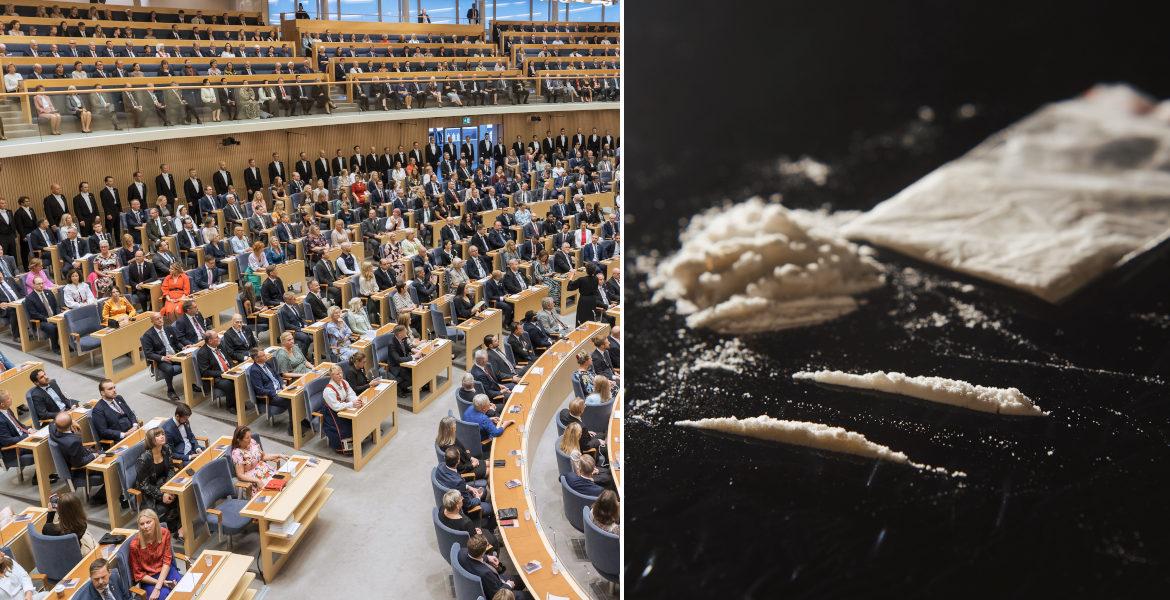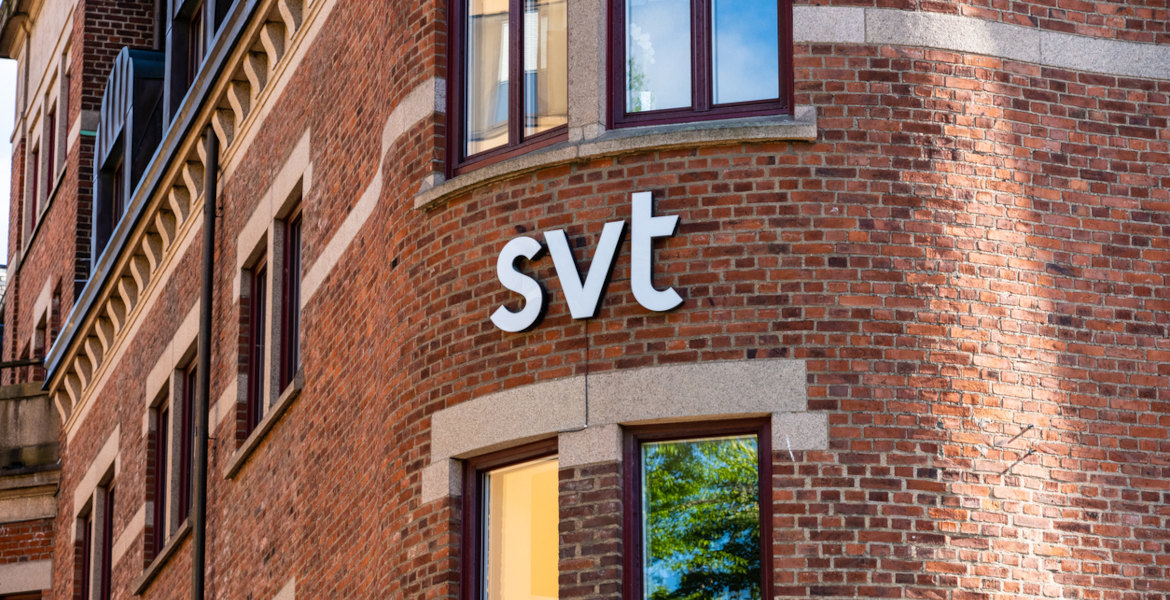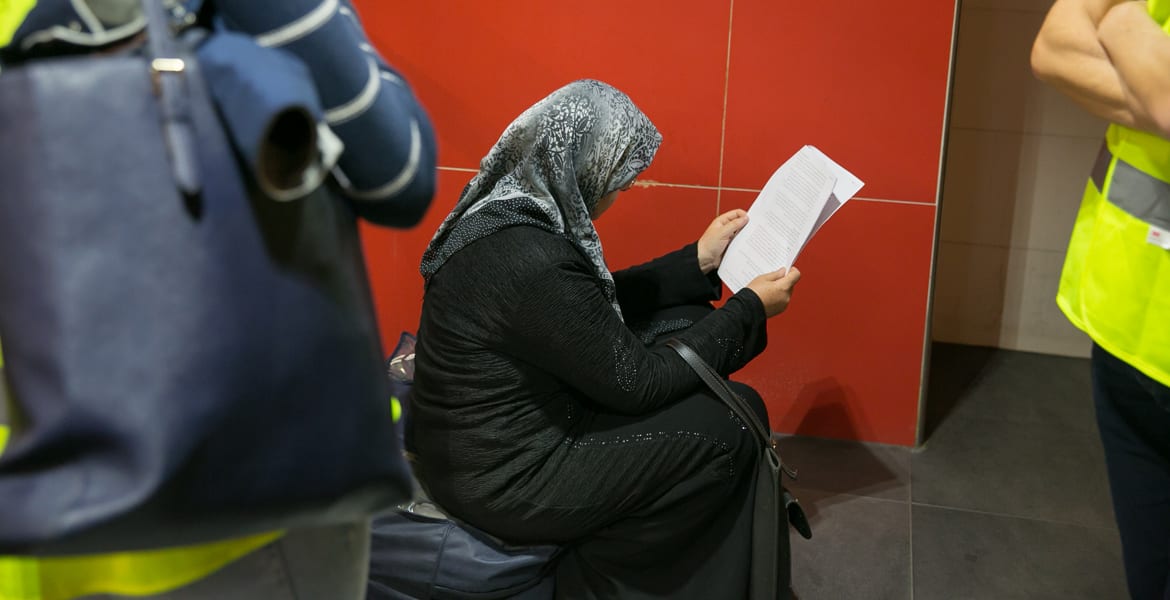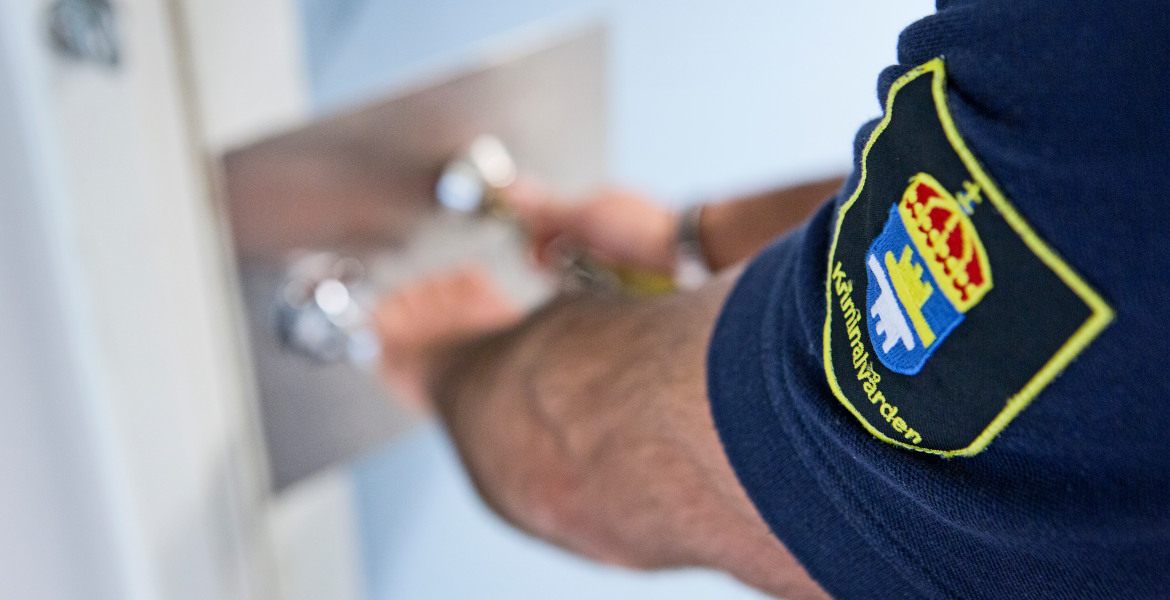Recently, journalists from infamous tabloid magazine Aftonbladet, owned by Schibsted and LO, revealed that traces of cocaine had been found in the party rooms of several parliamentary parties and in office toilets in the Swedish Riksdag.
The scandal has become a hot topic of discussion and led to calls for MPs and other staff to be drug tested.
According to Aftonbladet, the tests were conducted in the parties' parliamentary offices (with the exception of the Moderate Party, where the test was conducted in the party room) in connection with various interviews.
So-called cocaine napkins were used for the tests. The napkins turn blue when they absorb the drug, for example when wiping surfaces. The newspaper then had the napkins tested in a laboratory.
– We found cocaine in all the samples we received, says Anders Helander, a hospital chemist and researcher at the Karolinska Institutet who conducted the tests.
At present, it is virtually impossible to determine how long the traces have been there or who is responsible. Access to the site requires an access card or an invitation from someone with an access card.
An official of one of the parties concerned wonders how drugs can be in the office if parties are not allowed there, and explains that "many people have access to the party premises and that in the worst case it could be politicians who have used the drug.
– It might as well be an elected official, and that is not good.
Apropå kokain funnet på toaletter i riksdagen. Alla förstår att många politiker och journalister kör en linje utåt, men en annan linje (lina) privat. Som medborgare finner jag dock hyckleriet motbjudande. https://t.co/aPOcCnX8ww
— Emma (@Andemc2) January 17, 2024
Four parties on cocaine list
The parties whose samples showed traces of cocaine are the Left Party, the Social Democrats, the Liberals, the Social Democrats and the Sweden Democrats.
In connection with the revelation, representatives of the identified parties have expressed "seriousness" and "surprise", but point out that the toilets in question could, for example, have been used by visitors.
The Liberals said they would conduct their own tests. The Social Democrats and Sweden Democrats say they will contact the parliament's administration, and the Left Party intends to contact the parliament's chief security officer.
– It's a toilet that many people can use, but you shouldn't take drugs, that's the simple message, says Liberal Party leader Johan Pehrson to TT.

Åkesson wants drug tests
SD leader Jimmie Åkesson is in favour of drug testing in parliament.
– I don't know what the law says about the possibility of doing it, but I think it would be perfectly reasonable to do it in this workplace just like everyone else, says the SD leader.
The leader of the Christian Democrats, Ebba Busch, whose party does not yet appear in the context, is dismayed and says that the parliament is a workplace that should be drug-free.
– It has a very strong symbolic value if drug-free conditions are not maintained in a place that also concerns Sweden's highest decision-making assembly.
Strong public reaction
The public has reacted strongly to the discovery and, as usual, people on social media have posted many ironic and satirical clips as well as posts of a highly critical nature. On X, the profile @anilsasikter reacts to what he sees as inappropriate behavior by the leader of the Left Party, Nooshi Dadgostar who, instead of responding to the scandal in a serious way, asks the reporter if it "wouldn't be funny" if they tested the offices of Aftonbladet for cocaine instead.
https://twitter.com/anilsasikter/status/1747625271413346347?ref_src=twsrc%5Etfw%7Ctwcamp%5Etweetembed%7Ctwterm%5E1747625271413346347%7Ctwgr%5E69ae6d0aa173f5667f229020683420f17eb56db1%7Ctwcon%5Es1_c10&ref_url=https%3A%2F%2Fnyadagbladet.se%2Finrikes%2Fkokainskandal-i-riksdagen-sd-vill-drogtesta-politiker%2F
Common to all the criticism is what can be read and interpreted as contempt for politicians. Something that our elected representatives would probably like to see less of, not least in times of difficult economic conditions for many households.
Police involved
Due to the serious nature of the information, the parliamentary administration is involved and is working with the police in the matter. According to Niklas Åström, head of security at the Parliamentary Administration, a police report has been filed.
– We have of course reacted - it is of course unacceptable to have what can be assumed to be criminal activity on parliamentary premises, he says in a comment to TT.
– We must continue our efforts to work for a strong security culture in the Riksdag, both for those who work here and for all those who visit the Riksdag temporarily. We work together with the parties and the party offices. There are people responsible for security, and this work involves identifying preventive measures to ensure that such incidents do not happen again, says Niklas Åström.




